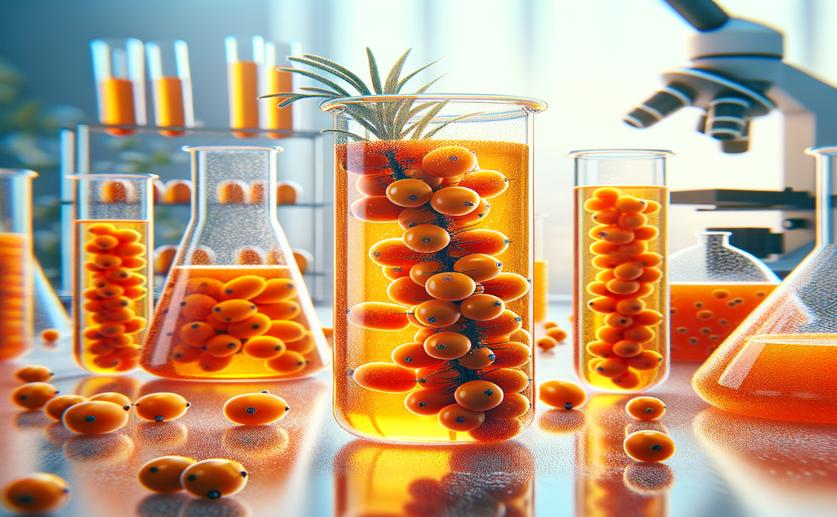
How Probiotic Fermentation Enhances Sea Buckthorn Juice for Lowering Cholesterol
Greg Howard
5th September, 2024

Image Source: Natural Science News, 2024
Key Findings
- Researchers at Yancheng Institute of Technology found that fermenting sea buckthorn juice with Lactobacillus plantarum Lp10211 significantly enhances its lipid-lowering properties
- The fermentation process increased the juice's phenolic compounds by 37.06%, boosting its antioxidant properties
- Fermented sea buckthorn juice showed a 95.42% inhibition of pancreatic lipase and reduced cholesterol micelle solubility by 59.15%, improving its ability to lower lipid levels
References
Main Study
1) Effects of cholesterol-lowering probiotic fermentation on the active components and in vitro hypolipidemic activity of sea buckthorn juice.
Published 2nd September, 2024
https://doi.org/10.1111/1750-3841.17301
Related Studies
2) Untargeted metabolomics of fermented onion (Allium cepa L) using UHPLC Q-TOF MS/MS reveals anti-obesity metabolites and in vivo efficacy in Caenorhabditis elegans.
3) Improvement in color expression and antioxidant activity of strawberry juice fermented with lactic acid bacteria: A phenolic-based research.
4) Dietary Supplementation with Sea Buckthorn Berry Puree Alters Plasma Metabolomic Profile and Gut Microbiota Composition in Hypercholesterolemia Population.



 26th July, 2024 | Greg Howard
26th July, 2024 | Greg Howard